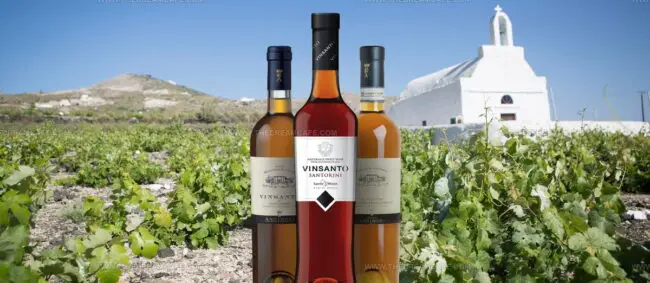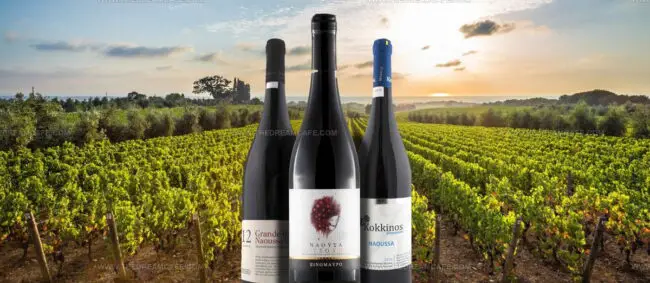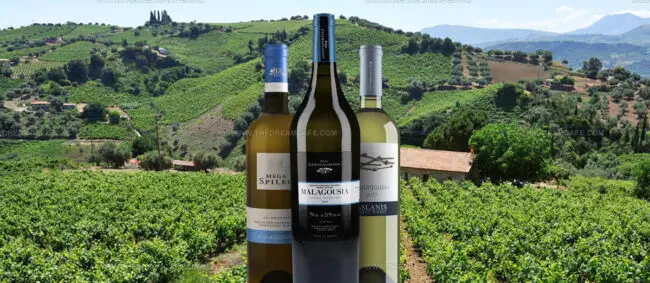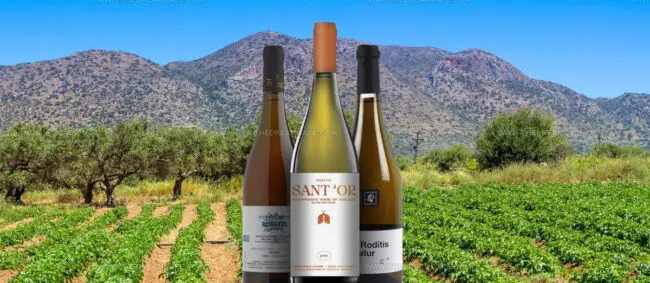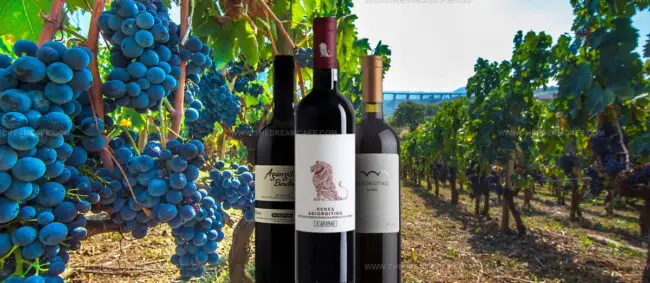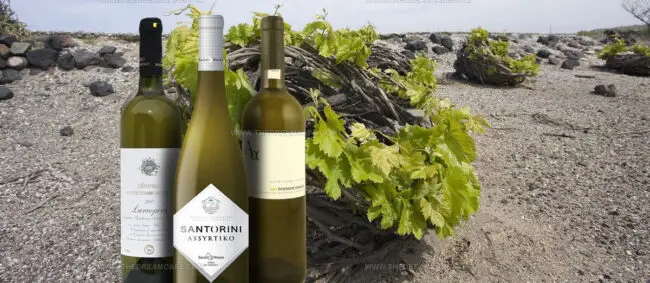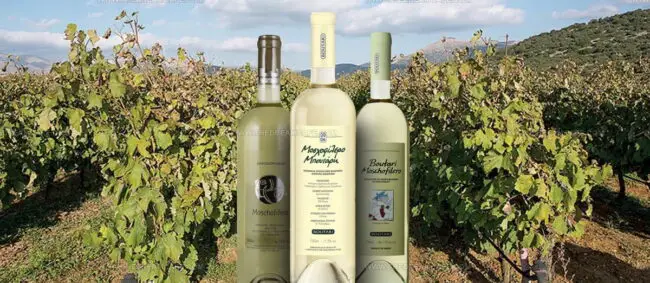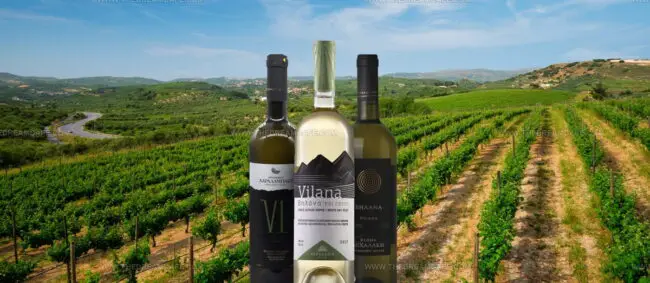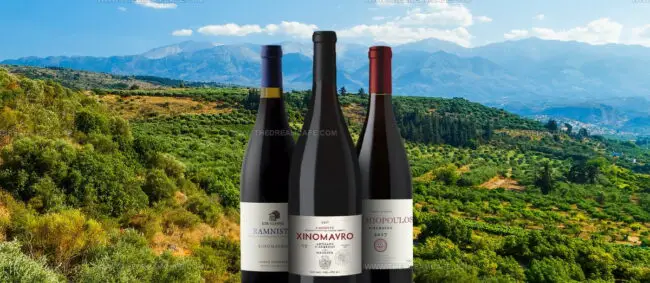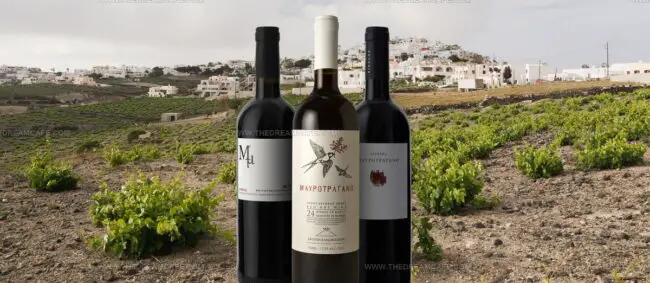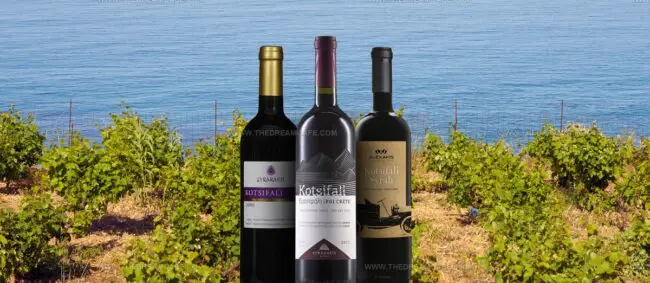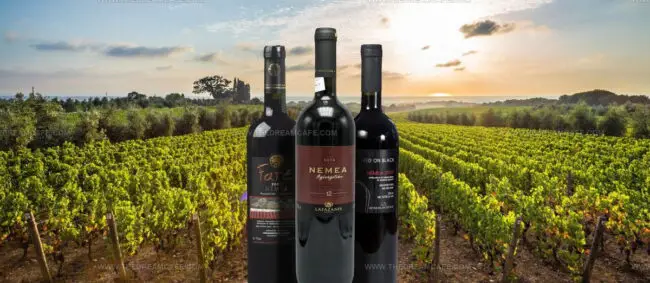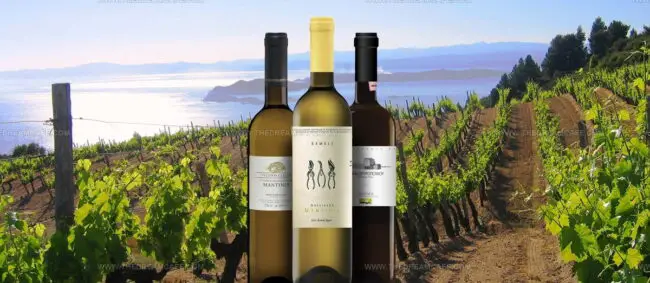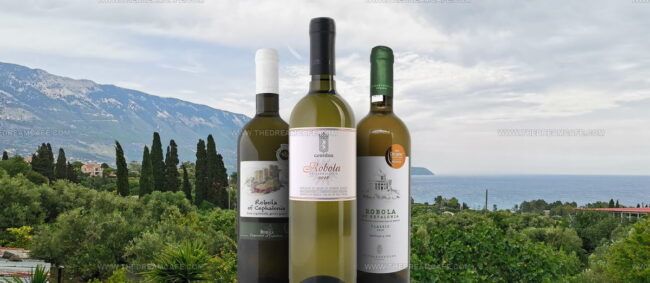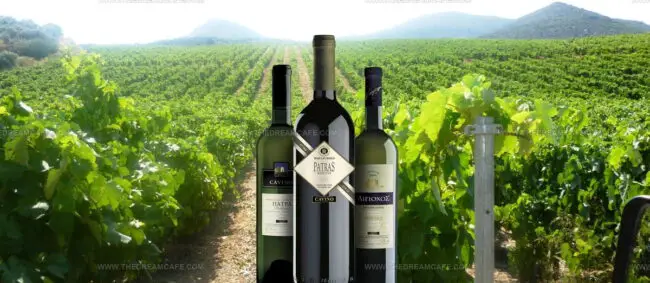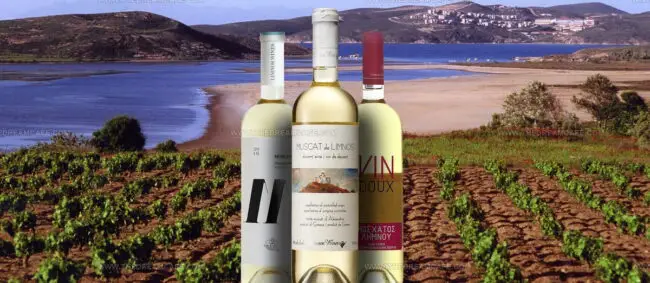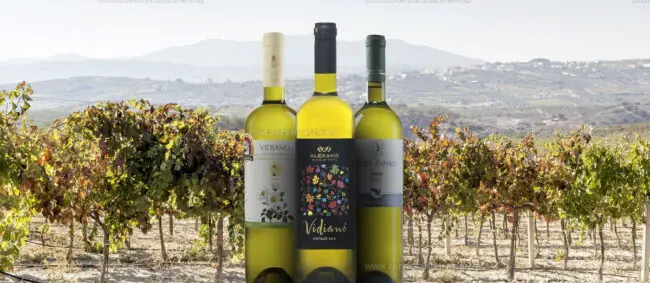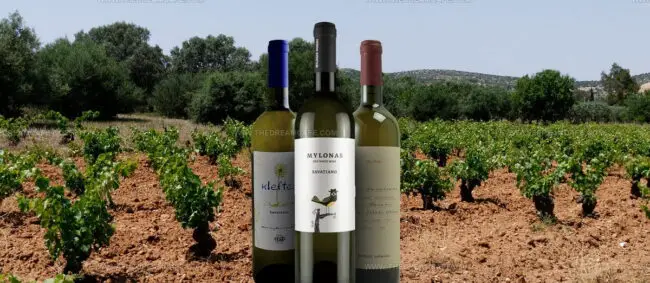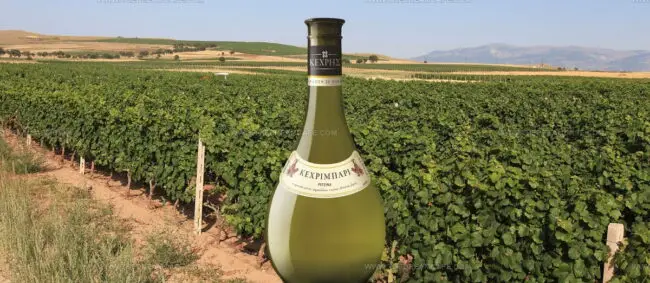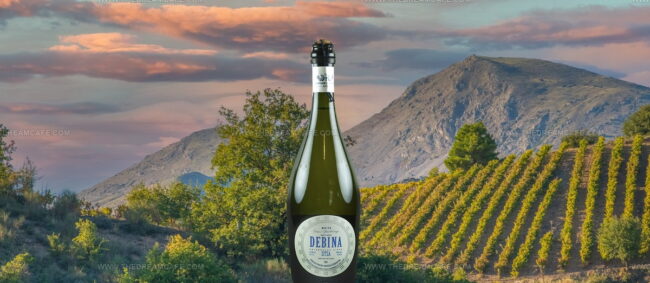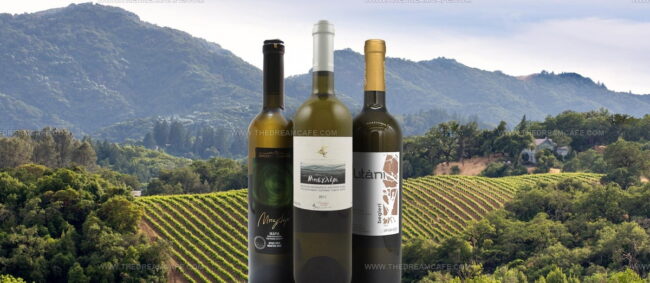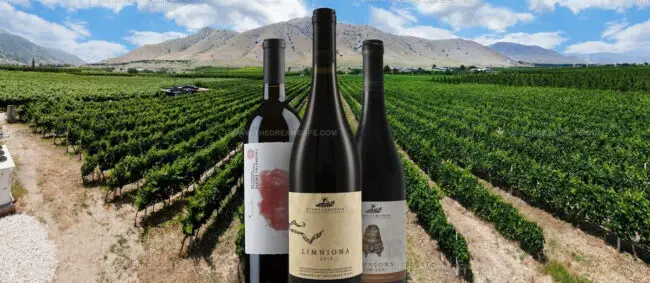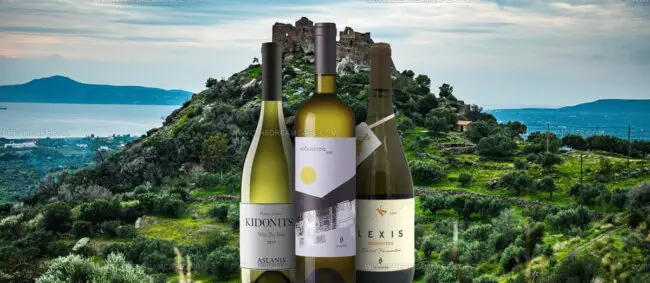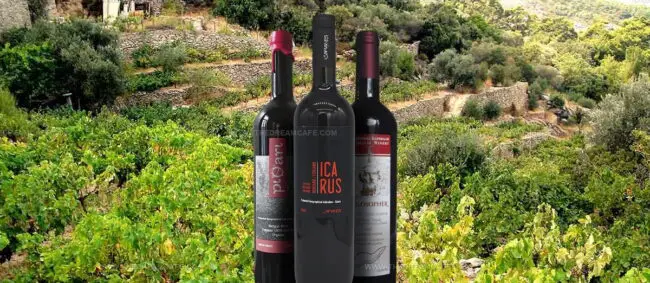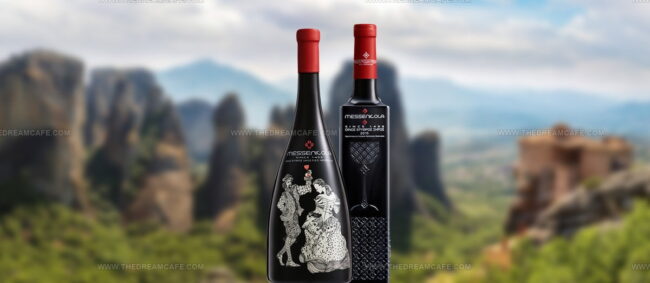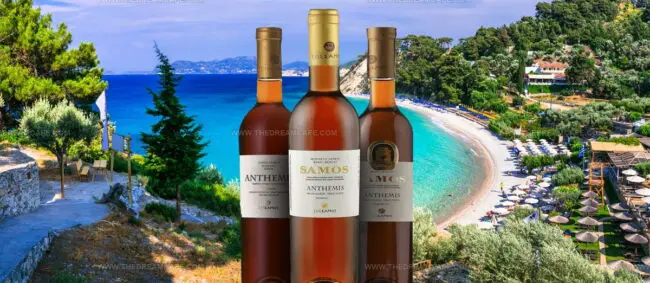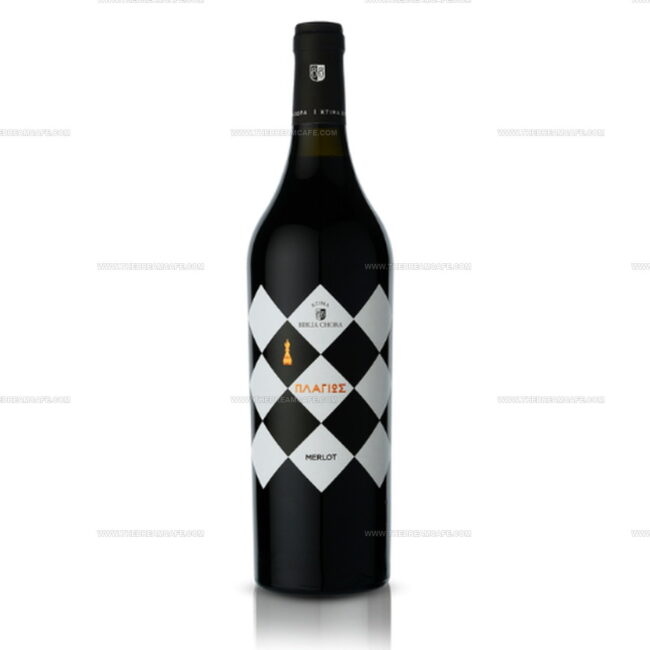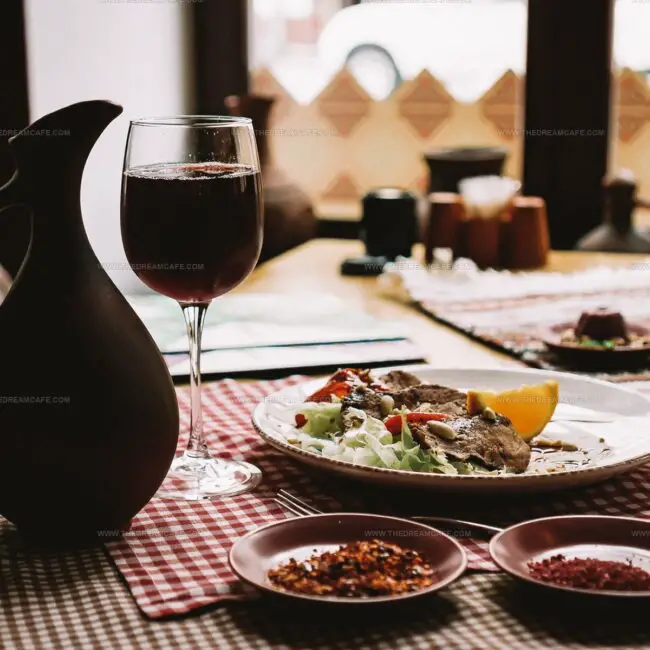30 Sip-Worthy Popular Greek Wines to Discover
Greek wines represent a vibrant tapestry of ancient traditions and modern winemaking techniques that captivate wine enthusiasts worldwide.
Mediterranean sunlight and volcanic soils contribute unique characteristics to these exceptional beverages.
Passionate vintners have cultivated grape varieties for thousands of years across rugged landscapes and island terrains.
Complex flavor profiles range from crisp whites to robust reds, reflecting regional microclimates and centuries-old cultivation practices.
Distinctive regional characteristics emerge through carefully crafted production methods that honor ancestral knowledge while embracing contemporary innovations.
Each bottle tells a story of cultural heritage, terroir, and meticulous craftsmanship passed through generations of winemakers.
These wines showcase Greece's remarkable agricultural diversity and commitment to exceptional quality.
You'll find 29 remarkable Greek wines that will transform your understanding of Mediterranean viticulture:
Top Greek Wine Types You Should Know
From crisp whites to robust reds, Greece’s vineyards offer wine types for every palate. Discover ancient grapes and modern blends that keep the country’s wine scene exciting.
Vinsanto
Vinsanto represents an exquisite Greek dessert wine crafted from sun-dried Assyrtiko and Aidani grapes on Santorini island.
Winemakers carefully dry grape clusters under intense Mediterranean sunlight for approximately fourteen days, concentrating their natural sugars and complexity.
Oak barrel aging for a minimum of two years transforms the wine into a luscious golden elixir with deepening amber tones as it matures.
Despite sharing a similar name, this unique Greek wine differs significantly from its Tuscan counterpart.
Sophisticated wine enthusiasts appreciate its intense sweetness and rich aromatic profile.
Each sip reveals layers of concentrated grape essence developed through traditional winemaking techniques.
Extended aging intensifies the wine's depth and character.
Complex flavor notes emerge from careful grape selection and patient production methods.
Naousa
Naousa wines represent a masterful Greek red wine from Macedonia's prestigious wine region, crafted exclusively from Xynomavroa grapes with distinctive characteristics similar to Pinot Noir.
Deep complexity defines these exceptional wines, offering an intricate flavor profile of dark fruits, tobacco, earth, and herbal spices.
Powerful tannins and balanced acidity make Naousa a sophisticated wine that develops extraordinary depth with aging.
Rare and nuanced, these wines are rarely consumed young and demand patient cellaring.
Sophisticated wine enthusiasts prize Naousa for its remarkable complexity and finesse among Greek wines.
Game meats, lamb dishes, tomato-based sauces, rich stews, sausages, mushrooms, and aged cheese complement its intense character perfectly.
Winemakers carefully cultivate Xynomavroa grapes to produce this exceptional regional expression.
Mature Naousa wines demonstrate extraordinary elegance and structural integrity.
Malagousia
Malagousia represents an extraordinary Greek white grape rescued from near extinction by winemaker Vangelis Gerovassiliou during the 1970s.
Producing incredibly aromatic dry and dessert wines, this ancient grape delivers complex sensory experiences with intense fruit profiles.
Wines crafted from Malagousia showcase powerful peach, pear, and tropical fruit notes complemented by subtle citrus and herbal undertones.
Exceptional bottles demonstrate remarkable fullness and roundness while maintaining surprising freshness and vibrancy.
Gerovassiliou's passionate preservation efforts transformed Malagousia from a forgotten varietal into a prized wine grape.
Greek vineyards now cultivate this grape across several regions, creating distinctive white wines with rich aromatic characteristics.
Sommelier recommendations increasingly highlight Malagousia as an exceptional Greek wine discovery.
Samos Nectar
Nectar is a luxurious sweet wine from Samos Island in Greece, crafted exclusively from sun-dried Muscat Blanc a Petits Grains grapes and aged in oak barrels for a minimum of three years.
Its light amber color signals an exceptional dessert wine with complex aromas of honey, raisins, and dried nuts.
Oak aging adds depth and intensity to its flavor profile, creating a sophisticated beverage.
Each sip reveals intricate layers of dried fruit, toffee, and subtle herbal undertones.
Balanced acidity prevents the wine from becoming overly sweet, making it a remarkable dessert companion.
Sommeliers recommend pairing Nectar with rich desserts or enjoying it as a standalone digestif.
Greek winemakers consider this wine a testament to their traditional winemaking expertise.
Roditis
Roditis is a versatile pink-skinned Greek grape variety prized for its high-acidity and terroir-driven nature.
Grown extensively across mainland Greece, this second most planted grape transforms from a bulk wine producer to a quality wine ingredient.
Winemakers now focus on high-altitude and old vine plantations to enhance its character.
Multi-clonal variations allow distinct wine profiles with subtle aromatic expressions.
The grape thrives in regions like Aigialia Slopes in Peloponnese, creating medium-bodied wines with complex flavor nuances.
Its adaptability makes it excellent for both varietal and blended wines.
Climate and elevation significantly impact its wine quality.
Agiorgitiko
Agiorgitiko represents Greece's most widespread red grape variety, originating in Nemea and producing remarkably versatile wines ranging from robust reds to light rosés and dessert styles.
Winemakers cultivate this grape across multiple Greek wine regions, creating complex vintages with distinctive fruity profiles and occasional sweet spice undertones.
Nemea remains the most significant growing area, where the grape achieves its deepest expression and highest quality potential.
Vintners appreciate Agiorgitiko's flexibility in wine production, using it as a primary component in many Greek blends.
Experienced producers carefully craft these wines to highlight the grape's natural aromatic qualities.
Variations in winemaking techniques allow Agiorgitiko to express different flavor intensities and styles.
Each bottle reflects the unique terroir and traditional winemaking methods of its specific Greek region.
Assyrtiko
Assyrtiko is a distinctive white grape variety native to Santorini's volcanic landscape, producing intense dry wines with remarkable minerality and citrus profiles.
Volcanic ash-rich soils on Aegean islands enable these grapes to maintain crisp acidity despite extended ripening periods.
Winemakers frequently blend this grape with Aidani and Athiri to create Vinsanto, a traditional sweet wine.
Dry Assyrtiko wines offer full-bodied textures with complex citrus notes and exceptional aging potential.
Grown primarily in Santorini, the grape has gained international recognition for its extraordinary wine qualities.
Volcanic terroir significantly influences the wine's distinctive mineral undertones.
Assyrtiko represents an exceptional expression of Greek white wine traditions.
Moschofilero
Moschofilero graces Greek vineyards with its elegant and aromatic white wine profile, originating from Peloponnese's cool mountain slopes.
Producers from PDO Mantinia championed Moschofilero's rise to prominence during the 1970s and 80s, transforming its regional status.
Higher altitude vineyards infuse the wine with intense floral notes, while lower elevation sites contribute exceptional freshness.
Winemakers carefully navigate the grape's sensitive growing requirements, managing its tendency toward high yields.
Varietal wines showcase clean, vibrant characteristics that reflect the unique terroir of their Greek homeland.
Mediterranean cuisine finds a perfect companion in Moschofilero's versatile and refreshing profile.
Each sip reveals layers of complexity that speak to generations of Greek winemaking tradition.
Vilana
Vilana wines emerge as crisp white Greek treasures from Crete's sun-drenched vineyards, transforming from once-overlooked grape varieties into elegant, refreshing beverages.
Winemakers now carefully cultivate this productive grape to create aromatic wines with bright citrus and green apple profiles.
Subtle floral and spice notes add complexity to these light-bodied whites.
Vintners produce Vilana as both pure varietal wines in Peza appellation and interesting blends, occasionally experimenting with oak aging.
Some producers push traditional boundaries by creating more sophisticated wine expressions.
Mediterranean seafood and lighter Greek dishes complement these easy-drinking wines perfectly.
Cool temperatures and controlled yields help unlock Vilana's hidden potential.
Crisp and approachable, these wines represent a modern renaissance of an ancient Greek grape variety.
Xinomavro
Xinomavro represents Greece's most distinctive red wine grape grown predominantly in northern regions, producing robust wines with remarkable complexity and intense savory characteristics.
Dark-skinned and powerful, this grape creates exceptional red wines known for their remarkable aging potential and exceptional structure.
Wines from Xinomavro deliver bold flavors of sour cherries, pomegranate, and unexpected notes of tomatoes and black olives.
Naousa PDO produces the most celebrated examples of these wines.
Young Xinomavro wines start intensely tannic with high acidity, gradually transforming into elegant expressions as they mature.
Winemakers compare Xinomavro to Italy's legendary Nebbiolo grape for its similar profound characteristics.
Sophisticated wine enthusiasts prize these wines for their unique flavor profile and remarkable aging capacity.
Xinomavro remains the second most planted dark-skinned grape in Greece, reflecting the country's rich winemaking heritage.
Mavrotragano
Mavrotragano is a rare Greek grape variety rescued from near extinction by innovative winemakers Haridimos Hatzidakis and Paris Sigalas, transforming a once-overlooked island grape into a premium wine with extraordinary depth.
Native to Santorini, this grape previously contributed to bland dessert wines and blends before modern vintners recognized its exceptional potential.
Deeply colored wines from Mavrotragano burst with complex flavor profiles featuring dark berry, cinnamon, and tobacco notes.
Elegant expressions showcase herbal and earthy undertones balanced by bright acidity and firm, velvety tannins.
Winemakers carefully cultivate these grapes to extract maximum character and complexity.
Small vineyard productions highlight the grape's unique terroir and remarkable revival.
Each bottle tells a story of preservation and innovative winemaking techniques.
Kostifali
Kostifali grapes are distinctive Mediterranean red-skinned varieties from Greece that create unique blended wines with compelling characteristics.
Greek winemakers primarily cultivate these grapes on Crete, where they produce high-yield harvests with remarkable versatility.
Kostifali wines typically feature low acidity and alcohol levels, making them perfect for mixing with other local grape varieties like Mandilaria.
Winemakers appreciate these grapes for their light, approachable profile with subtle fruity undertones and complex hints of spices, herbs, and floral notes.
These wines emerge best when consumed young, offering a smooth drinking experience.
Kostifali's primary weakness lies in its limited color and acid structure, which drives producers to blend it strategically.
Greek vineyards continue to preserve and develop this traditional grape variety with careful cultivation techniques.
Nemea
Nemea wines embody Greece's passionate winemaking tradition from Peloponnese's northeastern vineyards, crafting exceptional red wines exclusively from Agiorgitiko grapes.
These robust wines range from light and refreshing to intensely structured, delivering complex flavor profiles with remarkable depth.
Grape characteristics shine through vibrant notes of ripe red and black berries, accompanied by luscious plum and prune undertones.
Oak barrel aging introduces sophisticated spice dimensions, revealing subtle hints of nutmeg and black pepper.
Winemakers carefully cultivate these grapes in volcanic and limestone-rich soils, ensuring distinctive regional expression.
Regional microclimates contribute to the wine's unique character, balancing Mediterranean warmth with mountain elevation influences.
Vintners meticulously select and process grapes to preserve their natural essence and terroir-driven qualities.
Each bottle represents generations of Greek winemaking expertise, presenting a liquid narrative of Nemea's rich agricultural heritage.
Mantinia
Mantinia wines emerge from Greece's eastern Peloponnese as elegant white wines crafted exclusively from Moschofilero, an indigenous pink-skinned grape variety.
Cool mountain microclimates define this wine region's unique terroir, enabling grapes to develop exceptional aromatic qualities.
High-altitude vineyards surrounding mountainous landscapes contribute to the wine's crisp and delicate character.
Moschofilero grapes produce light-bodied wines with pronounced floral and citrus notes, typically featuring subtle hints of rose and lemon.
Traditional winemaking techniques preserve the grape's natural freshness and aromatic complexity.
Mediterranean breezes and limestone-rich soils further enhance the wine's distinctive mineral undertones.
Experienced Greek vintners carefully harvest and process these grapes to maintain their signature lightness.
Robola
Robola is a distinctive white Greek grape variety native to central Greece and Ionian islands, celebrated for producing high-quality wines with exceptional mineral character.
Grown predominantly on Cephalonia island, this grape creates refreshing wines featuring bright citrus and white flower aromas.
Robola wines typically demonstrate good acidity and medium body, with premium vintages revealing elegant flinty notes from higher altitude vineyards.
Historically confused with Ribolla Gialla, modern research confirms Robola's unique genetic profile.
Winemakers carefully cultivate these grapes to maximize their delicate flavor potential.
Mountain slopes provide ideal growing conditions for developing complex aromatics.
Greek wine enthusiasts appreciate Robola's crisp, sophisticated profile.
Regions like Cephalonia showcase this grape's remarkable winemaking potential.
Samos Vin Doux
Samos Vin Doux is a sweet Greek wine renowned for its unique production method of adding grape spirit before fermentation completes, creating a naturally sweet wine with higher alcohol content.
Produced from Muscat Blanc a Petits Grains grapes on the island of Samos, this wine showcases complex flavor profiles dominated by rich apricot jam and ripe melon notes.
Greece's winemaking tradition shines through its balanced sweetness and refreshing acidity, making it an exceptional dessert wine.
Samos winemakers craft this elegant drink using traditional techniques passed down through generations.
Aromatic and mellow, the wine pairs perfectly with fruit-based desserts and regional pastries.
Its golden color and smooth texture reflect the island's Mediterranean terroir.
Beyond sweet styles, Samos also produces dry wines and a special Nectar made from dried grapes.
Patras
Patras wines emerge from Greece's northern Peloponnese as exceptional white wine productions crafted from Roditis, a versatile pink-skinned grape variety known for creating aromatic and light-bodied wines.
Regional winemakers strategically cultivate Roditis grapes across fertile vineyards, producing crisp beverages with distinctive floral and citrus characteristics.
Mediterranean climate and volcanic soil contribute significantly to grape quality and wine complexity.
Roditis serves dual purposes in Greek wine production, functioning both as a standalone varietal and a critical blending component in traditional Retsina wines.
Winemaking traditions in Patras date back centuries, reflecting deep agricultural expertise passed through generations.
Greek wine regulations protect and promote these unique regional expressions.
Vintners carefully select and harvest grapes to maximize flavor potential.
Modern techniques complement ancient winemaking practices, ensuring consistent quality and international recognition.
Muscat Of Limnos
Muscat of Limnos wines are distinctive sweet Greek dessert wines crafted exclusively from white Muscat of Alexandria grapes on Limnos island.
Mediterranean winemakers produce these aromatic beverages through two traditional methods: fortification and natural sweetness.
Elegant and complex, these wines boast a rich body with remarkable flavor profiles featuring bright apricot and mint notes.
Balanced acidity and a long, smooth finish characterize each carefully produced bottle.
Sommelier recommendations suggest serving these wines well-chilled for optimal taste experience.
Exceptional temperature control and precise grape selection define these unique Greek wines.
Limnos' unique terroir contributes significantly to the wine's distinctive character.
Vidiano
Vidiano is a rare white grape indigenous to Crete that produces exceptional white wines with complex flavor profiles and rich historical significance.
Ancient vineyards around Rethymnon nurtured this grape since the 13th century, though it nearly disappeared before winemakers rediscovered its potential.
Straw-colored wines from Vidiano typically feature high alcohol and acidity levels with elegant textures.
Sophisticated aromas include melon, apricot, and quince with subtle floral undertones.
Nuanced hints of spice and minerality add depth to these distinctive wines.
Winemakers now carefully cultivate Vidiano, transforming it from a nearly forgotten variety into a sought-after regional specialty.
Modern techniques have elevated Vidiano's reputation among wine enthusiasts.
Recent decades have witnessed a remarkable renaissance for this unique Cretan grape variety.
Savatiano
Savatiano are crisp Greek white wines transforming from once-mundane table wines into sophisticated expressions of Mediterranean viticulture.
Greek winemakers revolutionized this grape by selecting cooler vineyard sites and harvesting earlier to preserve natural acidity.
Dry Savatiano wines showcase complex profiles with citrus, apple, and floral characteristics.
Mineral and herbaceous undertones add depth to these medium-bodied wines.
Some innovative producers experiment with skin-contact and oak aging techniques, creating rich and creamy vintages.
Yellow fruit nuances emerge in premium versions of these wines.
Modern Savatiano pairs beautifully with lighter Mediterranean dishes.
Winemakers now prioritize quality over quantity, elevating this traditional Greek grape variety.
Retsina
Retsina is a unique Greek white wine infused with pine resin, carrying centuries of winemaking tradition dating back four thousand years.
Ancient Greeks originally used resin to seal clay wine vessels, which accidentally created a distinctive flavor profile now celebrated worldwide.
Winemakers traditionally add Aleppo pine resin during fermentation, primarily using native Greek grape varieties like Savatiano and Assyrtiko.
Modern Retsina has dramatically transformed from its reputation as a bland tavern wine to a sophisticated, nuanced beverage.
Exceptional producers now craft high-quality versions with complex characteristics, focusing on crisp and aromatic profiles.
Pine-infused wines typically feature subtle herbal, green fruit, and citrus notes that complement the signature resinous undertone.
Greek winemakers continue refining this historic wine, ensuring its relevance in modern wine culture.
Debina
Debina grapes create exceptional white wines from Epirus, Greece, known for their remarkable high-acid profile and versatility in producing dry and sparkling wine styles.
Winemakers harvest this less-known Greek grape variety to craft refreshing vintages with distinctive toasty undertones in sparkling expressions.
Young Debina wines shine when paired with light seafood, vegetable dishes, and fresh salads.
Vintners value the grape's ability to generate complex flavor profiles despite its limited regional recognition.
Zitsa's distinctive terroir contributes significantly to Debina's unique wine character.
Grape clusters produce wines with clean, sharp taste experiences.
Mediterranean wine traditions benefit from this distinctive white grape variety.
Begleri Ikaria
Begleri wines burst with exceptional aromatic qualities from rare white grapes exclusively grown on Ikaria, a Greek island with unique viticultural heritage.
Greek winemakers carefully cultivate these grapes in limited quantities, producing crisp and lively wines with bright flavor profiles.
Researchers suggest Begleri might share genetic connections with an ancient Syrian grape variety.
Mediterranean terroir significantly influences the grape's distinctive character and wine qualities.
Small vineyards scattered across Ikaria's landscape nurture these exceptional grapes.
Wine experts recognize Begleri for its fresh and vibrant taste experience.
Limited production makes these wines particularly sought after by international wine collectors.
Small batches ensure each bottle represents authentic Greek winemaking traditions.
Limniona
Limniona is a rare and emerging Greek red grape variety from Thessaly, transforming from a historical blending grape to a sought-after monovarietal wine.
Dark berry and pomegranate aromas define its elegant profile, with high acidity and mineral undertones creating a smooth drinking experience.
Christos Zafeirakis, a dedicated winemaker, rescued this nearly extinct grape from disappearing forever.
His passionate work revived Limniona's reputation in Greek wine production.
Typically dry and refined, these wines offer complex herbal notes alongside fruity characteristics.
Mediterranean cuisine finds a perfect partner in Limniona's versatile flavor profile.
Sommelier circles now recognize this grape as an exciting discovery in Greek viticulture.
Kidonitsa
Kidonitsa is a rare Greek grape variety rescued from near extinction by passionate Peloponnese producers, celebrated for creating exceptional white wines with distinctive aromatic profiles.
Originating in Laconia, this ancient grape produces bright yellow wines with crisp acidity and medium body.
Floral and citrus notes enhance its complex character, making each sip a journey through traditional Greek winemaking.
Dry white wines from Kidonitsa grapes showcase exceptional grape potential and regional winemaking expertise.
Small production volumes add to its exclusivity and intrigue among wine connoisseurs.
Minimal plantings contribute to its rarity and historical significance.
Greece's commitment to preserving indigenous grape varieties shines through Kidonitsa's remarkable survival story.
Fokiano Ikaria
Fokiano wine, a legendary Greek island specialty from Ikaria, emerges as an extraordinary ancient wine with extraordinary potency reaching 18% alcohol by volume.
Traditional winemakers craft this unique beverage from sun-dried Fokiano grapes using centuries-old techniques like burying clay pots underground during fermentation.
Greek vintners carefully select specific fungi to enhance wine maturation and alcohol concentration.
Sweet Fokiano varieties pair wonderfully with honey, fruits, and nuts.
Ikaria island has produced this wine since ancient times, naming it after the mountain peak Pramnos.
Dry and naturally sweet versions showcase the grape's versatility.
Complex production methods distinguish Fokiano from standard wines.
Modern winemakers continue preserving this remarkable island tradition.
Messenikola
Mavro Messenikola are distinctive red wine grapes native to Greece's Thessaly region, crafting robust wines with deep color and complex flavor profiles.
Indigenous to Messenikolas, these grapes gained official designation in 1989, ensuring strict production standards for regional wines.
Winemakers must use at least 85% Mavro Messenikola grapes when creating their blends, with complementary local or international varieties filling the remaining percentage.
Characterized by rich tannins and moderate acidity, these wines offer earthy undertones with subtle dark fruit notes.
Thessalian vineyards carefully cultivate these grapes, leveraging the region's unique microclimate and soil conditions.
Red wine enthusiasts appreciate Mavro Messenikola for its unique regional expression and traditional winemaking techniques.
Small production volumes make these wines relatively rare in international markets.
Greek wine culture celebrates this grape as a testament to the country's diverse viticultural heritage.
Muscat Blanc A Petits Grains
Muscat Blanc a Petits Grains are small-berry grape clusters prized worldwide for exceptional aromatic complexity and winemaking versatility.
French winemakers have long celebrated this ancient grape variety for creating extraordinary sweet fortified wines in regions like Rhone Valley and Languedoc-Roussillon.
Italian producers transform these grapes into Moscato d'Asti, a lightly sparkling low-alcohol wine with intense floral and fruity notes.
Spanish vintners craft sweet Moscatel wines using these grapes, highlighting their remarkable flavor potential.
European winemakers appreciate the grape's high acidity and distinctive characteristics that produce wines ranging from delicate dry styles to rich dessert selections.
Global wine regions recognize Muscat Blanc a Petits Grains for creating wines with pronounced orange blossom, rose petal, apricot, and citrus aromatics.
Its versatility allows winemakers to craft unique expressions across different techniques and styles.
Anthemis
Anthemis represents a sophisticated sweet wine from Samos island, crafted exclusively from Moschato Aspro grapes through a unique aging process that preserves natural sweetness.
Oak-aged for five years, this amber-colored wine boasts an intense bouquet of dried fruits, caramelized nuts, and honey with subtle herbaceous undertones.
Wine experts prize Anthemis for its complex flavor profile developed by adding grape spirit before fermentation completes.
Greek winemakers carefully select premium Muscat Blanc a Petits Grains grapes to ensure exceptional quality.
Samos island's Mediterranean climate contributes to the wine's distinctive character.
Traditional production methods transform simple grapes into a luxurious dessert wine.
Oak aging enhances the wine's depth and complexity.
Vintners consider Anthemis a premium expression of Samos' winemaking heritage.
Greek Wines That Celebrate Sun and Soil
Every glass of Greek wine is a tribute to the landscape and history of the region. Raise a toast to bold reds, mineral-driven whites, and unique local varieties.
Ktima Biblia Chora Winery Plagios Red 2013
Merlot from Pangaeo represents a sophisticated Greek wine crafted through meticulous winemaking techniques in northern Greece's mountainous region.
French oak barrel aging for 16 months develops its complex character and robust flavor profile.
Classic red vinification methods ensure deep extraction of grape qualities.
Careful malolactic fermentation enhances the wine's smooth texture and depth.
Mediterranean mountain conditions contribute unique minerality to the wine's structure.
Moderate climate and specific terroir influence grape development and wine complexity.
French Merlot variety creates distinctive regional expression through careful production.
Winemakers select precise techniques to maximize grape potential and regional characteristics.
Where Are the Main Wine-Producing Regions of Greece?
Greece boasts a rich and diverse wine heritage, with several key regions known for producing distinctive wines rooted in ancient traditions and unique local grape varieties:
Each region’s terroir - from mountainous slopes to volcanic soils - shapes the character and flavor profiles of Greek wines, making the country a fascinating destination for wine lovers.

